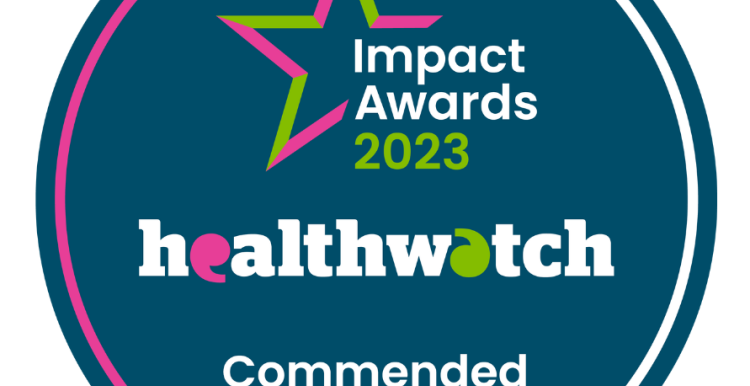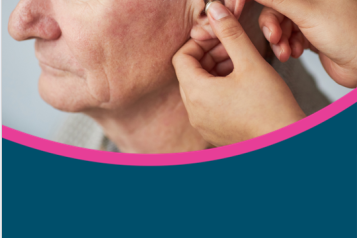We've been commended for improving care for D/deaf people in MK

The annual Healthwatch England awards recognise outstanding examples of local people's opinions being used to make valuable changes to health and care support.
In a field of tough competition, we're thrilled to receive a commendation for our work to make sure D/deaf patients using GP and hospital services in our city are given a BSL interpreter if they ask for one.
This is Carron's story.
Better, fairer care for D/deaf patients thanks to our work
After hearing from D/deaf patients in our community who’d been refused an interpreter, we shared these stories with GP practice managers and NHS primary care commissioners. We reminded them of their obligations under the Accessible Information Standard, and called for them to add a clause to GP contracts that would ensure they met those obligations.
What was our aim?
All D/deaf patients who need a BSL interpreter for their healthcare appointments in Milton Keynes – whether that’s with their GP or the hospital – get one.
The Accessible Information Standard is followed for D/deaf patients, and they are given communication and information support that met their needs
What change was needed?
How did we achieve change?
-
We did lots of outreach in the D/deaf community, and also hosted a dedicated D/deaf women’s health event, with a BSL interpreter.
-
We shared patient stories directly with GP practice managers and primary care commissioners, reminding them of the Accessible Information Standard, and what it means they have to offer to any patients who need added support.
-
We got a clause added to GP contracts.
-
Used our strategic influence on the ICB to advocate for a patient with a liver condition, who urgently needed an interpreter for her upcoming appointment.
- Now, GP surgeries and Milton Keynes University Hospital have inclusive policies in place. Providing an interpreter is a contractual obligation, and patients who need one can make informed decisions about their treatment.
-
Whilst it’s always been a legal obligation, providing a BSL interpreter is now also a contractual obligation for GP practices and Milton Keynes Hospital.
-
Staff are now empowered to give adequate support to D/deaf patients because good practice and inclusive policies are in place.
-
NHS staff now communicate with D/deaf patients in a way that meets their needs. Patients are therefore less likely to feel dismissed, vulnerable and uninformed about their own health.


